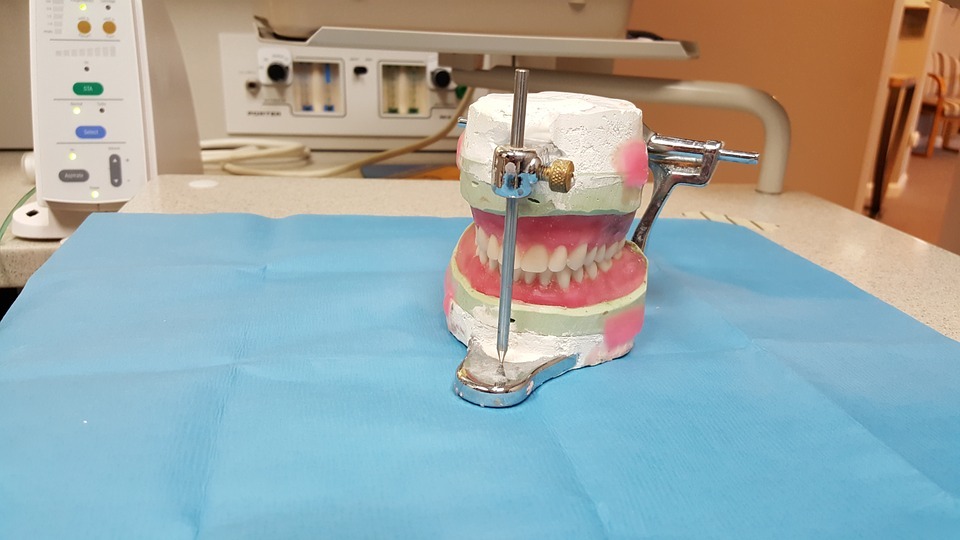Losing one or more of your teeth can be a devastating experience. Living with missing teeth can be tough. First, the aesthetics of your smile may be affected, which can cause you to become self-conscious. In addition to this, you may suffer common problems like indigestion due to the inability to break down food particles properly. Other problems may also include difficulty with speech. When missing teeth problems aren’t attended to quickly, the jaw bone may begin to shrink. This shrinkage can cause a change in the physical appearance of the affected person. These and many more are the common effects of missing teeth, according to Yuma Smiles.
To avoid these issues, one has to be proactive and visit a skilled dentist in restorative dental procedures. Different restorative dental procedures can address missing teeth problems. One of those procedures is Dentures. Dentures are designed to help patients to retain their ability to chew, speak, and eat properly. They also fill in the gap and improve the appearance of the patient’s smile.
For those who have lost their teeth, choosing the right kind of dentures may be a problem. Before you dive into dentures, ensure that you sort out gum diseases with this family dentist indialantic first. However, to better address this problem, they need as much information as possible to choose what works for them and prepare their minds for the procedure. This article dives deep into the common types of dentures you can choose from when you visit your dentist.
Types of Dentures
Full Denture
Full dentures are common. It is perhaps the commonest type of denture. A full denture is recommended for patients who have lost a significant portion of their teeth, whether in the upper or lower jaw region. To ensure that this restorative procedure looks as natural as it can be, the dentures are made with a gum or flesh-colored base and ceramic or porcelain teeth attached. The dentures are made to match the color of the natural teeth to prevent suspicion. If you want customised and affordable wa dentures, visit the link.
The full denture base can often be made from a metal alloy like chrome cobalt or acrylic. When choosing, it is important to note that dentures with acrylic base hold and fit better and more comfortably. However, they aren’t as durable as those made with chrome cobalt.
Partial Dentures
Partial dentures are the perfect go-to restorative option when a patient has lost a few of their teeth. The loss may be due to decay, dental diseases, age, or genetic makeup. Partial dentures are made to fit the areas where the missing teeth are so that the patient can enjoy a better smile and better bite force for food chewing. Partial dentures may involve attaching the crown to existing teeth or the use of metal clasps to hold the device in place.
Implant-Supported Dentures
Implant-supported dentures are a version of partial dentures. Implants are inserted into the patient’s gum instead of using metal clasps to attach the denture to existing teeth with this denture. The patient enjoys more activity in the jaw bone for implant-supported dentures, thus discouraging it from shrinking. Patients will also get to enjoy a greater bite force.
Immediate Dentures
If you are interested in a fast procedure to address your missing teeth, Immediate dentures may be the option for you. As opposed to the usual 8-week period required for the traditional denture to be made, this process is a lot faster. Traditional full dentures require removing the remaining teeth on the upper or lower jaw to ensure a perfect fit. Dentists also wait for the jaw to heal, then they take molds of the mouth to make dentures; all of these take time.
With immediate dentures, the dentures have been premade and can be inserted immediately into the mouth.
Overdentures
Patients who want full dentures but have a few natural teeth remaining on their upper or lower jaw can choose overdentures. These are designed to avoid the removal of healthy natural teeth. The dentures will be made to go over the natural teeth.
Choosing Which Is Right For You
Choosing which of these options is right for you can be a battle. However, below are some factors that can help you to make the necessary decision.
Cost – Consider the cost of each of the options that are suitable for your kind of tooth loss. Narrowing down based on cost and your pocket size can help with the decision-making process.
Security and Comfort – Dentures can become uncomfortable over time. Some users complain that it doesn’t fit, and there is a chance that it may spill out. Ask for information about comfort and security, and it’ll help narrow down your options.
The Condition of your Remaining Teeth – if you have a huge percentage of healthy teeth, you have no business with full dentures. Consider this when making your decision.

